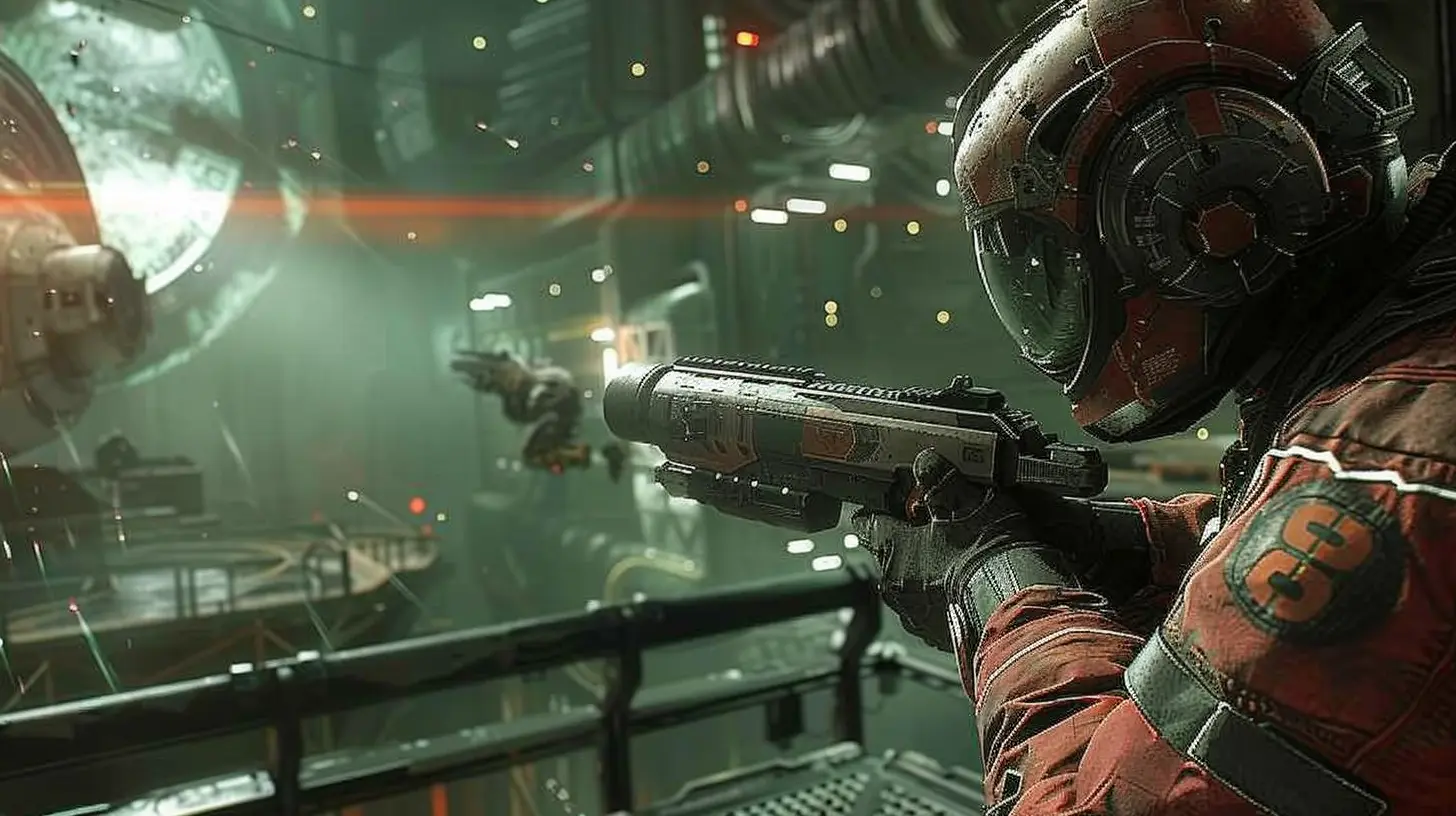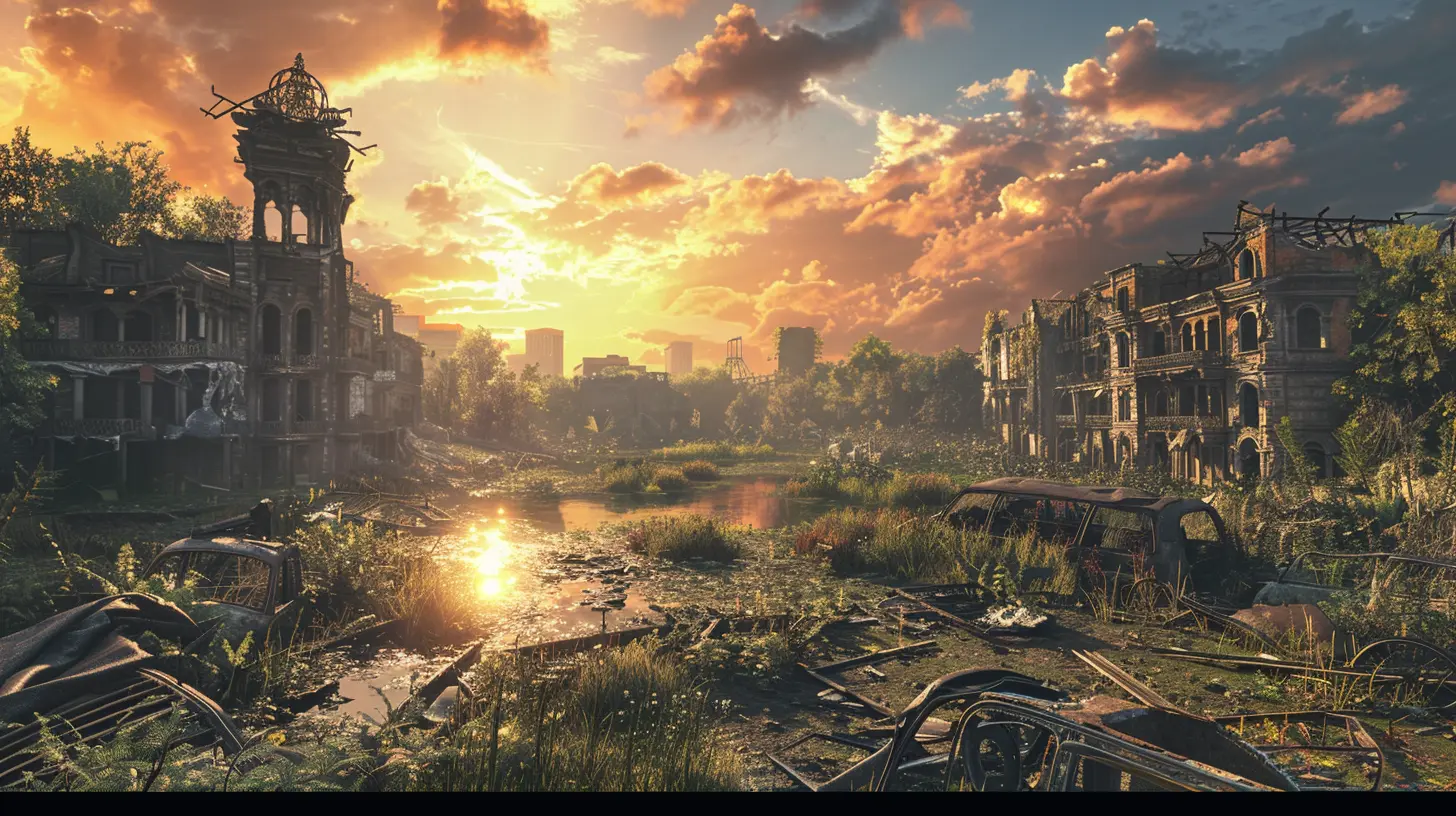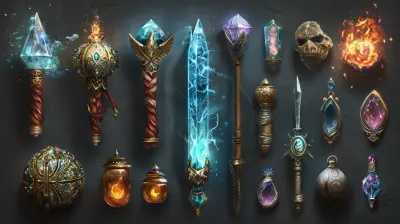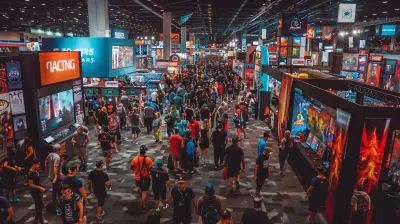Revolutionary Game Engines: What They Mean for Future Titles
27 June 2025
The world of video games is evolving at a pace faster than ever before. If we pause for a moment and think about it, games have come a long way from their pixelated roots. Remember those blocky characters from the days of Mario and Pac-Man? Now, compare them to the jaw-dropping visuals of modern hits like The Last of Us Part II or Cyberpunk 2077. The difference is mind-blowing, and at the heart of this transformation lies one crucial element—game engines.
Game engines are the unsung heroes of game development. They’re the beating heart of every title, the tools that power the immersive worlds we lose ourselves in. But what happens when these engines undergo massive upgrades or innovations? The future of gaming changes forever. In this blog, we’re diving into how revolutionary game engines are shaping the future of games, why you should care, and what you can expect from the next wave of gaming magic.
What Is a Game Engine, and Why Does It Matter?
Let’s break it down. A game engine is software developers use to create and design video games. Think of it like the skeleton of a game—it holds everything together. It’s responsible for rendering graphics, handling physics, controlling AI, and managing input from your controller or keyboard. Without a game engine, games wouldn’t be much more than a jumble of code and ideas.But don’t mistake game engines for some boring behind-the-scenes tool. They’re the powerhouse under the hood, and when a new engine hits the scene, developers are like kids on Christmas morning. It gives them the ability to create games that are bigger, better, and more immersive than ever before.
The Kings of the Game Engine World
There are several game engines out there, but a few giants dominate the industry. Let me introduce you to the big players:1. Unreal Engine
The Unreal Engine, created by Epic Games, is like the Swiss Army knife of game development. It’s insanely versatile and has powered hit games like Fortnite, Gears of War, and Final Fantasy VII Remake. The latest version, Unreal Engine 5, is a genuine game-changer. With cutting-edge features like Nanite (for near-infinite detail rendering) and Lumen (for real-time global illumination), it’s allowing developers to craft lifelike environments that look almost indistinguishable from reality.2. Unity
Unity might not have the same reputation for photo-realistic graphics as Unreal, but it’s no less important. It’s the go-to engine for indie developers because it’s super user-friendly and doesn’t require a giant budget. Unity powers games like Among Us, Hollow Knight, and Ori and the Blind Forest. Plus, with its strong emphasis on cross-platform compatibility, Unity is a game developer’s dream.3. Frostbite
Developed by EA, Frostbite is the magic behind heavyweights like the Battlefield series and FIFA. It’s a proprietary engine, meaning it’s mostly used for EA titles, but its strength lies in its ability to deliver stunning visuals while maintaining smooth performance. The detailed player animations and atmospheric effects you see in Battlefield? That’s Frostbite doing its thing.These engines, along with others like CryEngine, Godot, and Amazon’s Lumberyard, are constantly evolving. And as they improve, so do the games they help create.
What Makes Modern Game Engines Revolutionary?
Alright, so what’s so special about these modern game engines? In a word—possibility. They’re redefining what’s achievable in gaming. Let’s talk about the key innovations that are shaking things up:1. Hyper-Realistic Graphics
Graphics are the first thing you notice in a game. Modern engines are pushing the boundaries of realism with techniques like ray tracing, high-resolution textures, and advanced lighting systems (hey there, Unreal Engine 5’s Lumen). These engines are blurring the line between gaming and real life, making us question what’s virtual and what’s not.2. Real-Time Rendering
Remember the days when cutscenes looked way better than actual gameplay? Thanks to real-time rendering, those days are numbered. Game engines can now render cinematic-quality visuals during gameplay. This results in a more seamless and immersive experience for players. Who needs Hollywood when your games look this good?3. Procedural Generation
Procedural generation is a fancy way of saying that game worlds can be created dynamically on the fly. In plain English? It means developers can generate massive, open worlds with minimal effort. Games like No Man’s Sky owe their expansive universes to this technology.4. AI and Physics Simulation
Ever played a game where characters or objects behave oddly? That’s bad AI or physics at work. Modern engines are fixing that with smarter AI systems and more advanced physics simulations. Objects in games now fall, bounce, and react just like they would in real life. NPCs (non-playable characters) are also smarter, making gameplay more challenging and rewarding.5. Cross-Platform Compatibility
Modern engines are making it easier for developers to release games across multiple platforms (PC, consoles, mobile). This is a win-win for both developers and gamers. You can play your favorite titles wherever you want, and developers don’t have to do double the work.
How Revolutionary Engines Will Shape Future Titles
Let’s get to the part you’ve been waiting for—what do these next-gen engines mean for the games of tomorrow? Spoiler alert: they’re going to be insane.1. Even Bigger, More Immersive Worlds
Remember when open-world games like The Witcher 3 and Red Dead Redemption 2 seemed massive? Future titles are going to make those worlds look tiny in comparison. With advanced tools, developers can create sprawling, richly detailed environments that feel alive in ways we’ve never experienced before.2. The Rise of Photorealism
Get ready for games that look so realistic you might second-guess whether you’re playing or watching a movie. Unreal Engine 5 is already setting the stage for this with its insane lighting and texture capabilities. Imagine walking through a forest in a game and feeling like you can almost smell the pine trees—yeah, it’s gonna be that good.3. Smarter Games, Smarter Characters
AI advancements in game engines will lead to smarter, more adaptive NPCs. Think of opponents who learn your playstyle and adjust their tactics, or allies who truly feel like they’re on your side. It’s going to make games more engaging and unpredictable.4. More Accessibility for Indies
Indie games are flourishing, thanks to accessible engines like Unity and Godot. Revolutionary engines are lowering the barriers to entry, meaning anyone with a great idea can make a game. We’re going to see even more unique, creative titles that break the mold.5. Virtual Reality and Beyond
Modern engines are also paving the way for VR and AR experiences. Imagine exploring a game world not just on a screen but by actually stepping into it. Game engines are making that dream a reality.Challenges on the Horizon
Of course, it’s not all sunshine and rainbows. Revolutionary game engines come with their own set of challenges. For one, as engines become more advanced, they also become more complex. This can lead to longer development times and higher budgets. There’s also the risk of smaller studios being left behind as the industry moves toward more resource-intensive tools. But, with every challenge comes innovation, and the gaming industry has never been short on creativity.Why Should You Care About Game Engines?
You might be thinking, “That’s cool, but why does this matter to me?” The short answer: because it affects the games you play. Better game engines mean better games. They mean more jaw-dropping visuals, more immersive stories, and worlds that feel more alive. Whether you’re a casual gamer or a hardcore fan, revolutionary engines are going to make your gaming experience unforgettable.Plus, game engines aren’t just for games anymore. They’re being used in movies, architecture, and even virtual concerts (remember Travis Scott in Fortnite?). The possibilities are endless.
A Look Ahead
The gaming industry is on the verge of something incredible. Revolutionary game engines are opening doors we didn’t even know existed. The future of gaming isn’t just about playing—it's about experiencing. Whether it’s exploring hyper-realistic open worlds, interacting with smarter AI, or stepping into virtual reality realms, the next generation of games is going to blow our minds.So, buckle up. The ride is just getting started.
all images in this post were generated using AI tools
Category:
Gaming NewsAuthor:

Madeleine McCaffrey
Discussion
rate this article
2 comments
Noemi Kearns
Game engines: where pixels meet potential! Can’t wait to see what’s next!
September 20, 2025 at 3:53 AM

Madeleine McCaffrey
Thank you! The future of game engines holds exciting possibilities for innovation and creativity in gaming. Stay tuned!
Lark Blevins
This article highlights the transformative impact of revolutionary game engines on the gaming industry. As technology advances, we can expect more immersive experiences, richer graphics, and innovative gameplay mechanics in future titles, ultimately reshaping how we engage with games. Exciting times ahead!
July 2, 2025 at 3:05 AM

Madeleine McCaffrey
Thank you for your insightful comment! I'm thrilled you found the article highlights on the transformative potential of game engines exciting. Indeed, the future of gaming looks promising!


